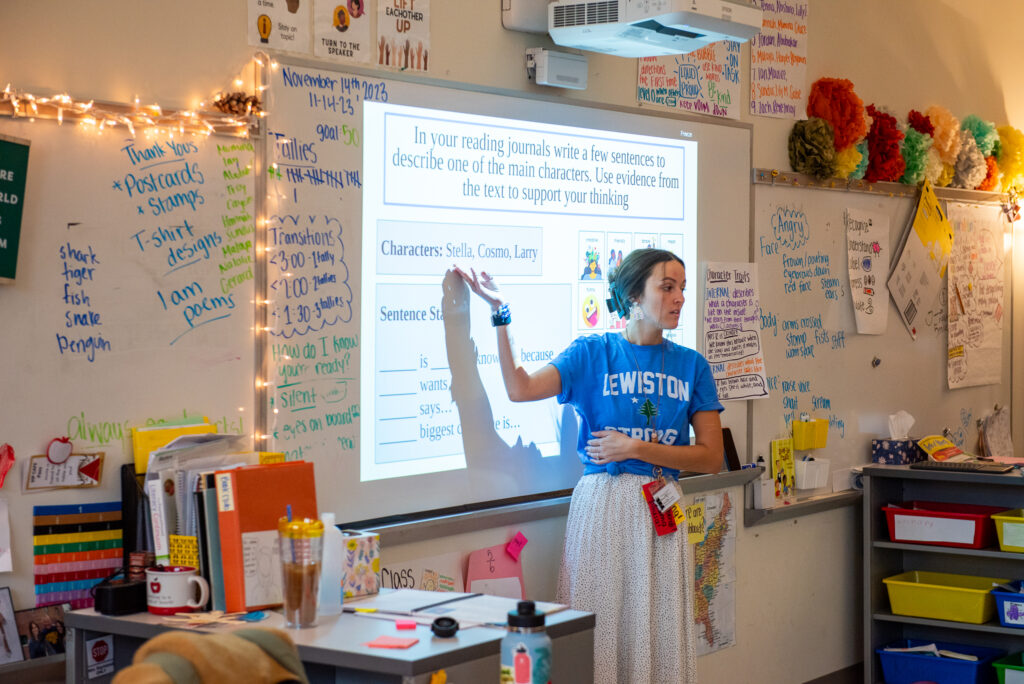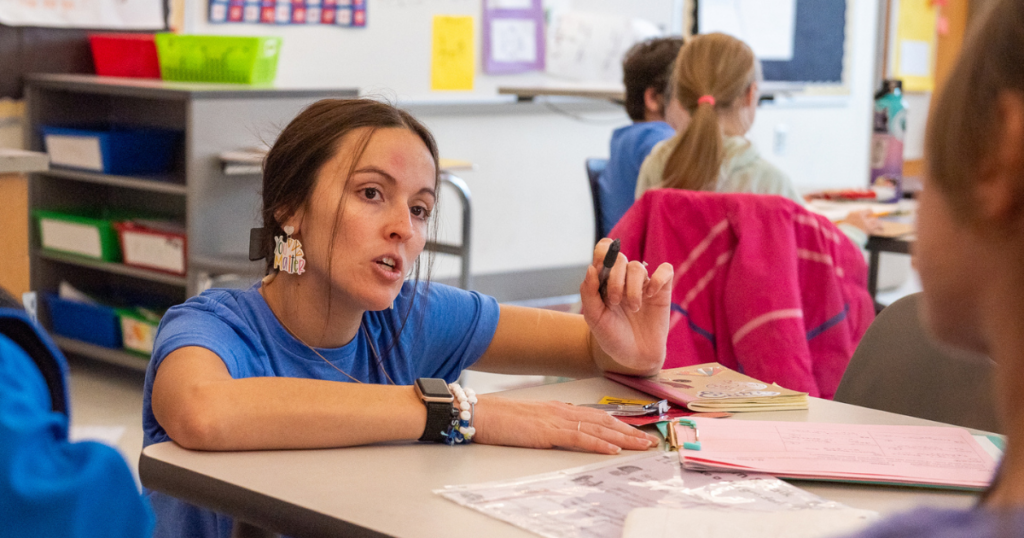Kennedy shared her story as part of MECEP’s State of Working Maine 2023 report. Click here to read the full report.
Kennedy is a 4th grade teacher at a Lewiston area school. She has a master’s in educational leadership with a concentration in English language learning and six years’ experience teaching in Maine elementary schools. We spoke to her just days after Maine’s deadliest mass shooting took place in her community.
I’m from Auburn and I’m a first-generation college student. I’m currently working in a new elementary school that merged two smaller schools. It’s been really tricky to navigate. We’re bringing two staff and two student populations together in a huge building. We have about 700 students, and many of them have really high needs.
There’s a lot of trauma here. I have students in my classroom who fled countries where active wars are being fought. I have students whose family members are incarcerated or using drugs. I have students who are homeless. I have students who have never been in a school before. All the things that make working in this diverse community so great are also what makes working here so incredibly difficult. It’s this beautiful chaos that in some moments comes together and is amazing, and in other moments is incredibly unsustainable and heartbreaking.
Fourteen languages are spoken at our school, including Dari, Pashto, Lingala, Swahili, Arabic, and Portuguese. But we only have one staff member considered an interpreter. We’ve got all this linguistic diversity and it’s impossible to meet all their needs. How can we get more multilingual people working in our schools? How can we get them as counselors and social workers? How can we get them as language learning specialists?
My current 4th graders were kindergarteners when the pandemic hit. The next year we reopened hybrid, where we only had seven or eight kids in each classroom. It was glorious! That hybrid year should have been the chance for people to look around and go, “Wow! The difference when you have a class of 10 versus a class of 20! How can we get class sizes down?” Because the behaviors were so minimal, and they were so manageable. Instead, we went right back to business as usual.

That first back-to-normal year was hard. We saw huge, huge behaviors. No kid knew how to school. We were having a lot of fights between students. Kids weren’t doing their work; they weren’t listening to adults. We didn’t have a lot of supports in place. We didn’t preemptively make sure teachers had the right training. Even now, I can pretty much count on having six or seven students who are going to have really high needs. And that might look like kids who are going to flip their lid and storm out of the classroom, or yell, or push and shove. Or it might look like kids who just completely shut down and become unresponsive.
I went into this year optimistic that things were going to be better. But then came the staffing crisis. Our school is so understaffed that we are constantly underwater. We have huge classes. I have 25 students, and 75% of them have significant needs. We started the year short teachers in 3rd, 4th, 5th, and 6th grades. Our special education department is short teachers, too. Our 3rd and 4th grades have no ed techs at all. We have one counselor for all 700 students. People are so overworked and so exhausted all the time. This could be the year that breaks me. What are we going to do when there are no teachers left and nobody wants to do this job anymore?
So many people leave this profession because they can make equivalent money in a less stressful way. The salary issue is huge. We had support for a $50K minimum salary for teachers, but it never made it into the budget. I get it, it’s costly. But if you invest in schools and you invest in teachers, that is an investment in Maine’s future. We are the people shaping the next generation. Money isn’t everything, but it is something. I love this town, and I love my students. I want these kids to be able to reach their full potential, and I believe everyone who works in education wants that.
Because of the mass shooting, supports are streaming into our school. But I worry that it’s just part of a cycle where we send counselors, we send therapy dogs, we send this, we send that, and then, as those things start to go away, we just go back to how it was before. If there’s going to be any kind of light that comes out of this, then let’s make real change. Let’s be better.




